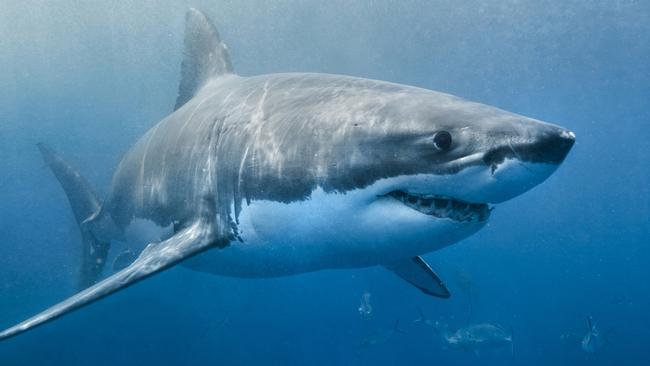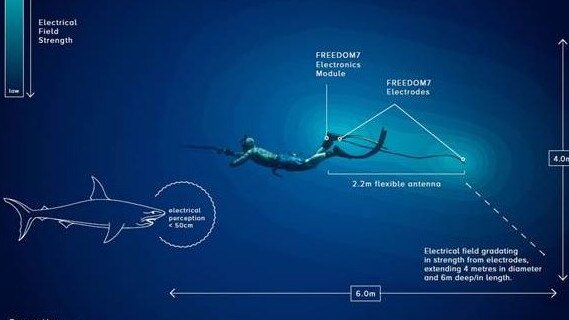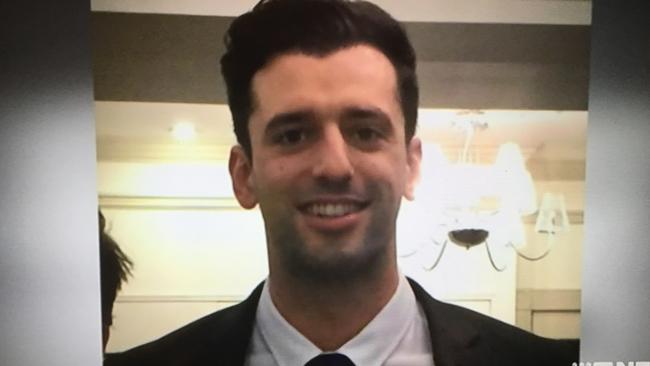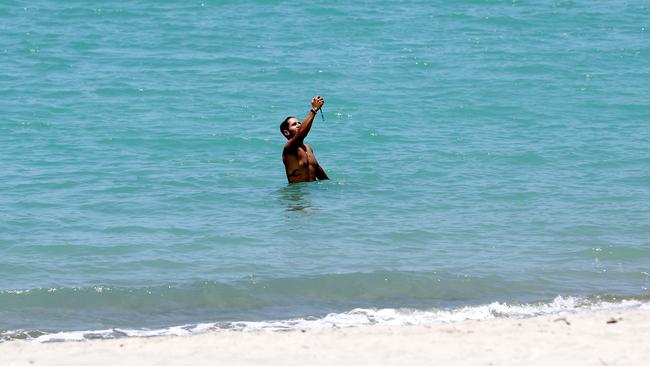Whitsundays charter operator’s plan to stop shark attacks
The Whitsundays’ largest bareboat charter operator has taken tourist safety into their own hands by spending $25,000 to help give customers peace of mind when swimming in the wake of three shark attacks.
QLD News
Don't miss out on the headlines from QLD News. Followed categories will be added to My News.
A WHITSUNDAY bareboat charter company has equipped each of its 40 boats with shark deterrent devices in the wake of recent shark attacks in Cid Harbour.
Whitsunday Escape, the largest bareboat charter operator in the Whitsundays, has spent $25,000 on 40 of Ocean Guardian’s Freedom7 electronic shark deterrent devices.
They can be worn on a swimmer’s ankle or attached to a boat ladder, giving a four metre by six metre protection zone for anyone within that area.
The device creates a three-dimensional electrical field which causes safe but unbearable spasms in a shark’s sensitive electrical receptors in their snouts, turning them away.

The electrical field is created by a trailing antenna attached to a power module worn on a swimmer’s or snorkeller’s ankle.
TOURISTS WERE BEING WARNED OF SHARKS IN WHITSUNDAYS
State Government, tourism and scientific representatives recently agreed on the need for more shark research, swimming bans in Cid Harbour and shark education, after a round table meeting.
Whitsunday Escape office manager Alita De Brincat said research would take some time.
“We wanted to give our customers something to use in the interim, to give people peace of mind,” she said.

Ms De Brincat said the shark repellent devices were suggested by a Fisheries Department representative at the round table meeting.
Since May last year, the Western Australian Government has offered a $200 rebate for surfers and divers who buy an approved shark deterrent device, including the Freedom7 and another device.
The government said they were the only devices independently tested and scientifically proven to significantly reduce the risk of shark attack.
Ms De Brincat said some tourism operators suggested to the Queensland Government that it could introduce such a rebate scheme for shark deterrents, but had not had a reply.

“It’s definitely the way to go. A lot more people are preferring this option to culling sharks,’’ Ms De Brincat said.
The first two customers to be offered use of the devices began their charter holiday on Friday.
“When we emailed our customers to tell them what we were doing there was overwhelming support,’’ Ms De Brinkat said.
Ocean Guardian next year will release a new shark deterrent device designed to be dropped off a boat, offering a wider shark safety zone.
Ms De Brincat said Whitsunday Escape would buy the new devices, if they were proven to work.
Ocean Guardian chief executive officer Lindsay Lyon said the shark shield technology devices had been the subject of four research projects.
Mr Lyon said one other bareboat charter operator in the Whitsundays had bought some devices to trial before deciding whether to use them on their boats.

A University of Western Australia study in South Africa of 322 encounters involving 41 great white sharks, found all were effectively deterred on first encounter with a shark shield device.
All stayed an average of 1.3m away from a baited canister with the device attached and only one shark bumped the canister after multiple approaches.


